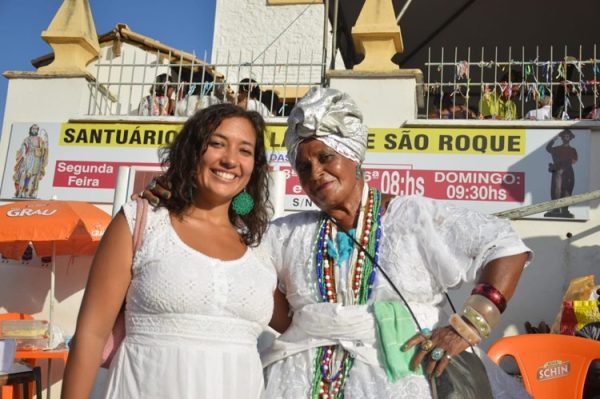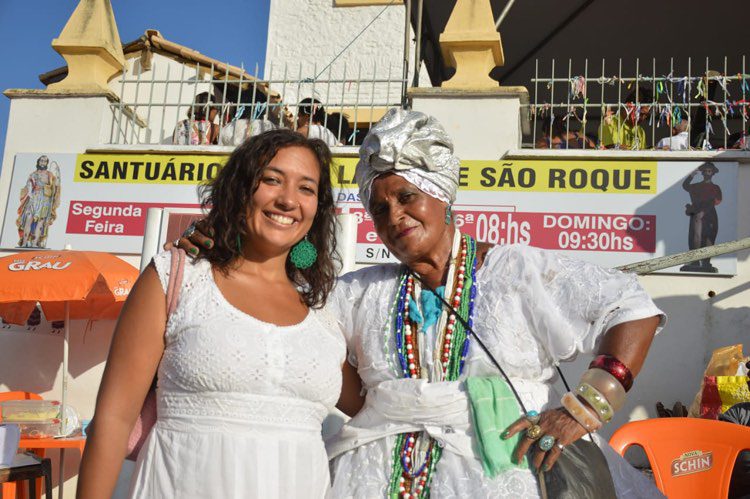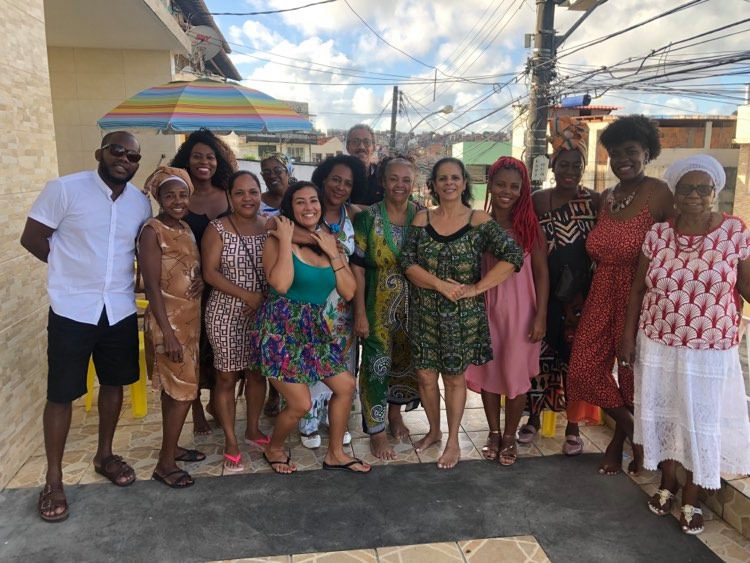Study Abroad Alumna Named Dartmouth Post-Doc Fellow in Afro-Latinx Studies

“I never knew study abroad was an option,” Vanessa Castañeda, Ph.D., told me.
As a daughter of immigrant parents and the first person in her family to go to a four-year university, Vanessa had not heard that study abroad was a possibility at UNC Charlotte. At least, that was the case until she stumbled upon the annual study abroad fair, back in the days when it was held outside near the now-demolished Belk Tower. After visiting the different booths and chatting with a senior who had studied abroad for over a year and was graduating on time, she began to realize the possibilities.
“I just thought it was amazing that you could travel and study for a semester in another country and get credit towards your degree,” she explained. Little did she know that this initial encounter with study abroad would eventually lead her to earn not only her Master’s degree, but also to be awarded a Fulbright Research Grant, and most recently, her Ph.D. in Latin American Studies from Tulane University.

Vanessa (left) with one of the baianas of Salvador
Initially planning to become a medical doctor, Vanessa started her study abroad journey at UNC Charlotte with a six-week faculty-led program in Guadalajara, Mexico. Her parents are originally from Mexico, and she regularly visited the country during summer vacation, so she didn’t encounter much resistance from them when she first planned to go abroad. It was another story when she planned her second experience, an exchange program to the Federal University of Bahia in Salvador, Brazil.
“My dad tried to convince me not to study abroad because he was afraid,” Vanessa said. “Being an immigrant and uprooting his whole life to provide a better life for his children, he just wanted to ensure that I never place myself in a dangerous situation.” Sympathetic to his concerns, Vanessa introduced her parents to some Brazilian students who were already at UNC Charlotte through the same exchange program she planned to join. She and her family invited the Brazilian exchange students into their home and prepared Mexican food for them, helping them feel welcome in their new community and teaching them about their culture at the same time.
“It made it easier for him to accept the fact that I was going to study abroad,” Vanessa said in regards to introducing the exchange students to her father. He could now see the value of the experience, and that she could have the same sense of community while in Brazil.
She did ultimately find that community abroad, but in the process she also developed new perspectives on her own identity, both as a Latina and as a U.S. citizen. Identifying herself as a Latina to her friends and classmates when she first arrived in Salvador, Vanessa was sometimes met with confusion.
“I had to explain the history of migration waves in the United States, which are very different from Brazil, and how this contributed to a very specific understanding of how race is defined and how you define yourself in relation to other people,” she said. “It forces you to expand your world view and expand your perception of society, but also of yourself internally. When I am in the United States I am 100% certain that I’m a woman of color. But when I’m in Salvador, some people say that I’m white, and I’m just like, no, I’m not white. I’ve never been treated as a white person. But I have to understand that the way I’m read [in Brazil] is different because of all these different social constructs and all these different histories.”
Vanessa’s experience in Brazil inspired her to switch her major to Anthropology and Latin American studies. After graduating from UNC Charlotte in 2009, she moved to New York to pursue her Master’s at NYU, and received a research grant which allowed her to return to Salvador in 2013. It was during this time that Vanessa became interested in the baianas, older Afro-descendant street vendors who were organizing and protesting for the right to sell their local cuisines within the stadiums of the soccer Confederate Cup and World Cup – a right that they eventually won.

Vanessa (sixth from left) with friends and colleagues in Brazil
“These women are really emblematic cultural icons of the city and region… I thought it was fascinating that this group of working class, older women, street vendors, beat this mega, multinational force,” Vanessa said. “I felt I should commit to a deeper study about what’s happening there, and really think about it through a Black feminist lens, a transnational lens. I decided to continue this work for my doctorate, and it’s all because of my experience through the UNC Charlotte study abroad program.” She now explores how the baianas straddle the realms of cultural objects and political agents in their everyday lives.
It took Vanessa several years to gain the trust of baianas, because they weren’t sure how committed she was to her research. “People have emotions,” she said. “You have to dedicate a lot of time and energy to prove yourself trustworthy.” She continued to go back to Salvador every summer, and then in 2018 received a Fulbright Research Grant to spend a year there, resulting in much stronger relationships with the baianas and their local Association. When the pandemic hit, Vanessa started a GoFundMe to provide funds and basic necessities for the vendors who were unable to work.
“I try to have a reciprocal relationship – I don’t think of myself as arriving there and extracting the information I want and then continuing with my trajectory,” she said.
Vanessa finished her dissertation during the summer of 2021, and as of fall 2021, has taken up a new position at Ivy League Dartmouth College as a Guarini Dean’s Postdoctoral Fellow in Afro-Latinx and/or Afro-Latin American Studies. To her fellow UNC Charlotte students, she says that, “if you have the privilege, the ability to leave the country and come back, studying abroad is so important.” Vanessa knows that not only did her study abroad experience define her career path, it also helped her get out of her comfort zone and understand how large this world really is.
“It’s such an experience to constantly have to question yourself,” she said of her time abroad. “I’m used to this, but now I’m here and things are different. And this is interesting. This is foreign. This is maybe even uncomfortable. Why?” She believes that students should lean into these experiences, and hopefully translate them into skills that go beyond study abroad, such as becoming a better student, having healthy communication with people at work, and more.
“We’re a globalized world, and it’s only becoming more and more so. Being able to know how to respectfully communicate and live with a diverse group of people is an amazing skill. My advice is that if you can study abroad, you should.”